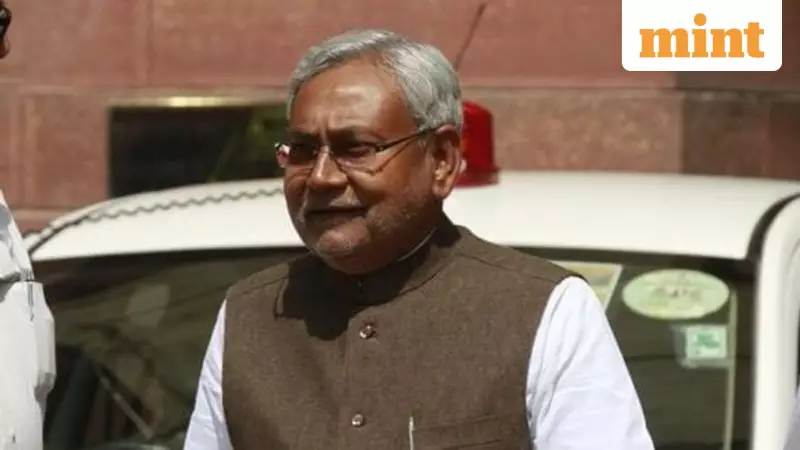
NDA Storms Toward Historic Victory in Bihar Elections
The National Democratic Alliance is heading for a massive victory in the Bihar assembly elections, with current trends showing the coalition leading in an impressive 196 seats. This performance puts the alliance on track to potentially surpass the 2010 record when the NDA secured 206 seats in the state legislature.
As per Election Commission data at 12:52 pm, the BJP is leading in 88 constituencies while Chief Minister Nitish Kumar's JD(U) is ahead in 79 seats. The Lok Janshakti Party is leading in 21 constituencies, with Hindustani Awam Morcha and Rashtriya Lok Morcha each leading in 4 seats.
Opposition Trails Significantly in Vote Count
The opposition Mahagathbandhan, led by Tejashwi Yadav's RJD, is trailing significantly with the RJD leading in only 31 seats. The Congress is ahead in just 4 constituencies, while the CPI(ML) leads in 5 and CPI-M in 1 seat. Other parties including the BSP and AIMIM are leading in 1 and 5 seats respectively.
The strong performance reflects overwhelming voter confidence in the leadership of both Chief Minister Nitish Kumar and Prime Minister Narendra Modi, who campaigned extensively together throughout the state.
From Jungle Raj to Development: Bihar's Transformation
The current electoral mandate represents a dramatic turnaround from what was once described as Bihar's "Jungle Raj" era spanning from 1990 to 2005 under Lalu Prasad Yadav and later his wife Rabri Devi. This period was marked by governance collapse, caste-based violence, and multiple massacres including the Bara (1992) and Laxmanpur Bathe (1997) incidents.
Former Prime Minister Atal Bihari Vajpayee had famously described the situation as "a national embarrassment and a failed state within the Union." During a 2003 public gathering in Patna, Vajpayee stated: "Bihar mein jungle raj chal raha hai… yeh sirf Bihar ka nahi, poore desh ka sawal hai" (Jungle Raj prevails in Bihar… this is not just Bihar's issue, but the nation's).
Nitish Kumar's Development Revolution
When Nitish Kumar assumed office in November 2005, he inherited a state plagued by lawlessness and institutional breakdown. His government immediately prioritized restoring law and order as the foundation for broader development.
The results were transformative:
- Establishment of fast-track courts leading to conviction of over 100,000 criminals between 2005-2010
- Recruitment of nearly 70,000 new police personnel, doubling the force strength
- Construction of over 1,000 new police stations with upgraded equipment
- Kidnappings for ransom dropped from 411 in 2004 to 66 in 2010
- Murder rate declined from 11.4 to 6.2 per 100,000 people
The infrastructure development under Kumar's leadership has been equally impressive. His government constructed over 50,000 kilometers of all-weather pucca roads between 2005 and 2015, connecting every village with a population above 500. Bihar's road density eventually surged past the national average.
Education and Power Sector Reforms
In the education sector, the Nitish Kumar administration built 70,000 new classrooms and hired 300,000 teachers. The pioneering bicycle scheme for schoolgirls boosted female secondary enrollment from 300,000 to 1.8 million, representing one of the most successful educational initiatives in recent Indian history.
The power sector witnessed remarkable improvement with electricity reaching nearly 20,000 villages. Per capita power consumption quadrupled from 70 kWh in 2005 to over 300 kWh by 2015, bringing reliable electricity to millions of households for the first time.
Political Significance and National Implications
Bihar, being India's third most populous state with nearly 89% rural population, has always played a critical role in shaping national politics. The NDA leadership has attributed the current mandate to the state's strong rural support base and what they describe as Bihar's "vote for dignity and self-respect."
The return of a coordinated BJP-JD(U) alliance, with Prime Minister Modi standing firmly beside Nitish Kumar throughout the campaign, projected a united front that emphasized welfare delivery, infrastructure expansion, social schemes, and administrative stability.
Nitish Kumar's political journey spans more than four decades, rising through the JP movement of the mid-1970s. His adaptability and strategic clarity, inspired by political veterans including Ram Manohar Lohia, SN Sinha, Karpuri Thakur, and VP Singh, have been instrumental in his enduring political success.
As trends continue to favor the NDA, Bihar appears set to continue its development trajectory under stable leadership, marking a decisive rejection of the state's troubled past and an endorsement of the progress achieved over the past two decades.






